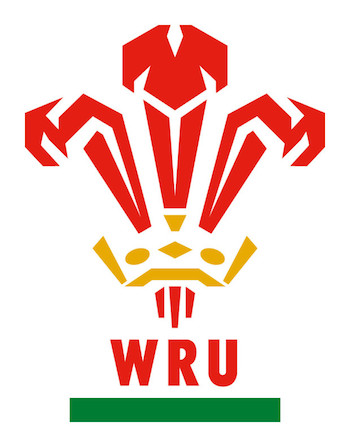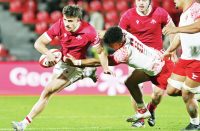 Ever since the mucky stuff began hitting the fans a depressingly long time ago, the Welsh Rugby Union have repeatedly used one catch-phrase to justify their actions. It has been trotted out ad nauseum in defence of every impasse: “We are acting in the best interests of Welsh rugby.’”
Ever since the mucky stuff began hitting the fans a depressingly long time ago, the Welsh Rugby Union have repeatedly used one catch-phrase to justify their actions. It has been trotted out ad nauseum in defence of every impasse: “We are acting in the best interests of Welsh rugby.’”
Roger Lewis has made it his mantra, one which the chief executive has been enunciating off and on for almost five years.
In terms of recent public airing, it has been a case of more on than off. When the four Regions revealed last week that the “indescribably tortuous” negotiations over a new agreement had hit another dead-end, the Union issued a six-paragraph response.
It began with a touchy reference to their being ‘saddened and surprised’ and finished with the old favourite, reassuring the masses that the ‘governing body will work to ensure the rugby commitments associated to the payments are acceptable to all parties and in the best interests of Welsh rugby.’
The italics are mine, to emphasise the point that according to the Union, it’s always in the best interests of Welsh rugby. In September 2009, when the four Regions signed their contentious ‘Participation Agreement’ which ran out at the end of last year, the Union blew their trumpet.
“We have achieved an agreement which is rooted in the best interests of the whole of Welsh rugby because a winning Wales will deliver the support and commercial success we need to sustain rugby at all levels across our nation.”
When the Regions decided that the terms for renewing that agreement amounted to a recipe for bankruptcy, the Union issued a statement on New Year’s Eve expressing their confidence “that professional teams from Wales will continue to take part in sanctioned League and Cup competitions in the best interests of all of Welsh rugby.”
Forty eight hours later, by which time the Regions had called their bluff over being liquidated for failing to sign, the Union were at it again: “The Board of Directors of the Welsh Rugby Union met today and unanimously agreed that a positive way forward for professional rugby in Wales as set out in the WRU’s statement of 31 December 2013, is in the best interests of Welsh rugby.”
It certainly wasn’t in the best interests of the four Regions. By then they were in the process of exchanging contracts with Premier Rugby Ltd, the English clubs’ umbrella organisation, to join the Aviva Premiership, if necessary in defiance of their respective Unions and the IRB.
In February, when the unholy Anglo-Welsh alliance emerged as the crucial factor in the clubs winning control of the European Cup from the Unions, the WRU were still backing the wrong horse. The Regions had followed the English clubs’ lead in boycotting meetings of European Rugby Cup Ltd rather than waste any more time attending meetings in Dublin.
The WRU declared on February 5 that “the regional organisations are best served by being represented on the board of directors of ERC and working with the WRU so that the best interests of Welsh rugby can be met.’
Eleven days later, Lewis said: “I am cautiously optimistic that we can arrive at a position that is in the best interests of rugby and the best interests of Welsh rugby.”
When the WRU signed Sam Warburton to form a centrally-contracted stable of one, Lewis said: “This is all about us working together in the best interests of rugby in Wales…’
Working together? The Regions’ exasperation at the exact opposite, as made painfully clear in their letter to the WRU published in The Rugby Paper last week, drove them to condemn the latest breakdown as “a national disgrace”.
Unsurprisingly, the in-the-best-interests message has assumed a hollow ring to a growing number of fans exasperated by the interminable political wrangling. That the WRU find themselves fighting on two fronts, against the regions at one end of the game and 100 or so grass-root clubs at the other over the Swalec League restructure, raises further questions over their ability to govern.
Gerald Davies touched on the subject at last month’s EGM in referring to the Union’s “tarnished reputation”.
“We need to govern the game in a way we wish it to be governed,” he said in what was tantamount to a resignation speech days before he announced he would not be seeking re-election to the WRU board.
Politics is supposed to be the art of the possible, as mastered by Thomas Jefferson, high up in the Premier League of the best American presidents. “I never considered a difference of opinion in politics, in religion in philosophy, as cause for withdrawing from a friend,” he said.
Like any business, the WRU have to strike the best deal for themselves. But, unlike any business, they have an obligation to the wider sport. Alienating a tranche of grass-roots clubs is hardly the way to go about it.
Is it in the best interests of the game that the Regions accuse the Union of trying to starve them into financial ruin?
Is it in the best interests of the game that the grass-roots clubs are in the process of seeking an injunction against their own Union over the League restructure?
Is it in the best interests of the game that international players report for pre-season training with their Regions to murmurings that some may have to be sold to make ends meet?
The row does nothing for the image of Welsh rugby beyond its boundaries, not least because it has given the Twitterati ammunition for pot shots like this one from Brian Moore: “They could reshuffle Michael Gove to head the WRU.”
At least the Pit Bull stopped short of suggesting that it would be in the best interests of the game.
*This article was published in The Rugby Paper on July 20























